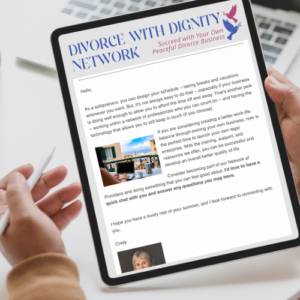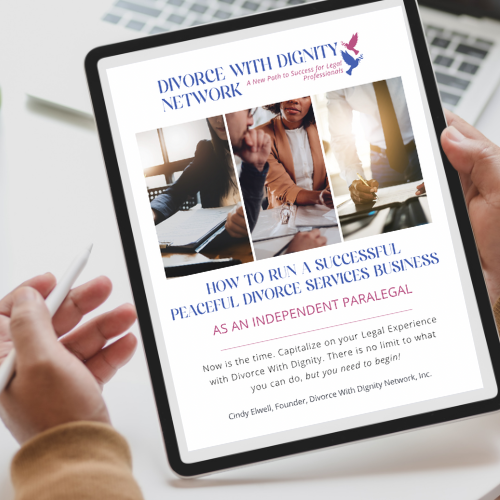Legal technicians are now a new category of legal service practitioners what are the impacts for independent paralegals and consumers.
Earlier this year the Washington State Supreme Court announced its approval of a new rule that creates a new category for legal service provides called Limited License Legal Technician, (LLLT). At the time, we wrote a blog “Legal Technicians – New Opportunities In Peaceful Divorce,” regarding this momentous event.
We wanted to revisit the impact of this new category of legal professional established in the State of Washington and how it compares to other existing legal service practitioners in other States and how it may impact consumers.
A Limited License Legal Technician is allowed to provide regulated, limited legal assistance to the public. Beginning on September 1, 2012, LLLTs in Washington State are able to perform the following legal services:
1. Type the legal forms under the client’s supervision
2. Give clients materials prepared by attorneys
3. File legal documents for clients
4. Inform clients of procedures and “anticipated course of the legal proceeding”.
5. Review and explain facts, documents, exhibits, and relevancy
6. Perform legal research and write legal letters and documents (provided they
are reviewed
by a Washington lawyer)
7. Select and complete forms approved by various groups
8. Advise clients about other needed documents and assist them in obtaining those
documents.
We asked Cindy Elwell, Founder of Divorce With Dignity Network, Inc. to share her thoughts on this ground breaking development in legal services.
Impact on Paralegal Profession
Currently, in my state of California, legal technicians called Legal Document Assistants, (LDAs), are allowed only to provide the first three legal services in the above list. As an LDA, I would love to see a similar law enacted in California, to enhance the scope of our work and give us more freedom to really explain the facts of the case to our clients. I would encourage independent paralegals in all states to contact their legislatures to ask them to promote laws and regulations similar to those enacted in Washington State for LLLTs.
Expanding the role of qualified paralegals as LLLTs opens up a whole new field for paralegals to independently help the public rather than simply work for an attorney. In most states paralegals can work independently, but they often feel the need to avoid drawing attention to themselves by advertising their business because some attorneys feel that a paralegal working independently is inappropriate and feel that they might be guilty of “unlawful practice of law” (UPL) if they are offering what some attorneys consider legal advice.
With this new ruling, what the court has done is to allow LLLTs to give procedural advice (not legal advice), but it still leaves room for doubt in some people’s minds. It can be difficult for some independent paralegals to know what they can and cannot do.
The great thing about the new LLLT category is that it is closely regulated and paralegals who want to be licensed as LLLTs must pass rigorous requirements to qualify. The regulations make it clear what an LLLT needs to do and what they need to comply with, which protects the public because everyone will know exactly what they can and cannot do. This goes a long way to improving the stature of LLTs increasing its viability and respect for the profession among consumers of legal services.
It is not only paralegals who benefit from this new rule and new legal services practitioner category.
Impact on Consumers
Our country and capitalist system has always championed the freedom of open markets. The action by the Washington State Supreme Court is in keeping with our tradition and will make legal services more accessible and affordable to more people and that is a positive for our country.
It helps consumers seeking divorce services by providing a more affordable alternative to courtroom litigation. According to the Washington State Supreme Court, “there are people who need only limited levels of assistance that can be provided by non-lawyers trained and overseen within the frameworks of the regulator system…This assistance should be available and affordable.” (1) It is, in fact, a major step toward removing divorce from the courts and changing the adversarial, contentious process of divorce to a more peaceful approach that benefits all members of a family going through divorce.
For Washington State paralegals, the new rule empowers them to pursue their own independent business serving the public, and I hope this will bring a surge of new legal technicians in that state.
As the founder of the Divorce With Dignity Network, we welcome motivated legal technicians in Washington State who would like to learn more about becoming an owner of their own Divorce With Dignity business. Divorce With Dignity provides a business opportunity for legal technicians, enabling them to join a network of like-minded peers who are committed to peaceful divorce facilitation. To learn more please visit our websitePeacefulDivorceBusiness.Com.
(1) http://theempoweredparalegal.com/?p=2122





